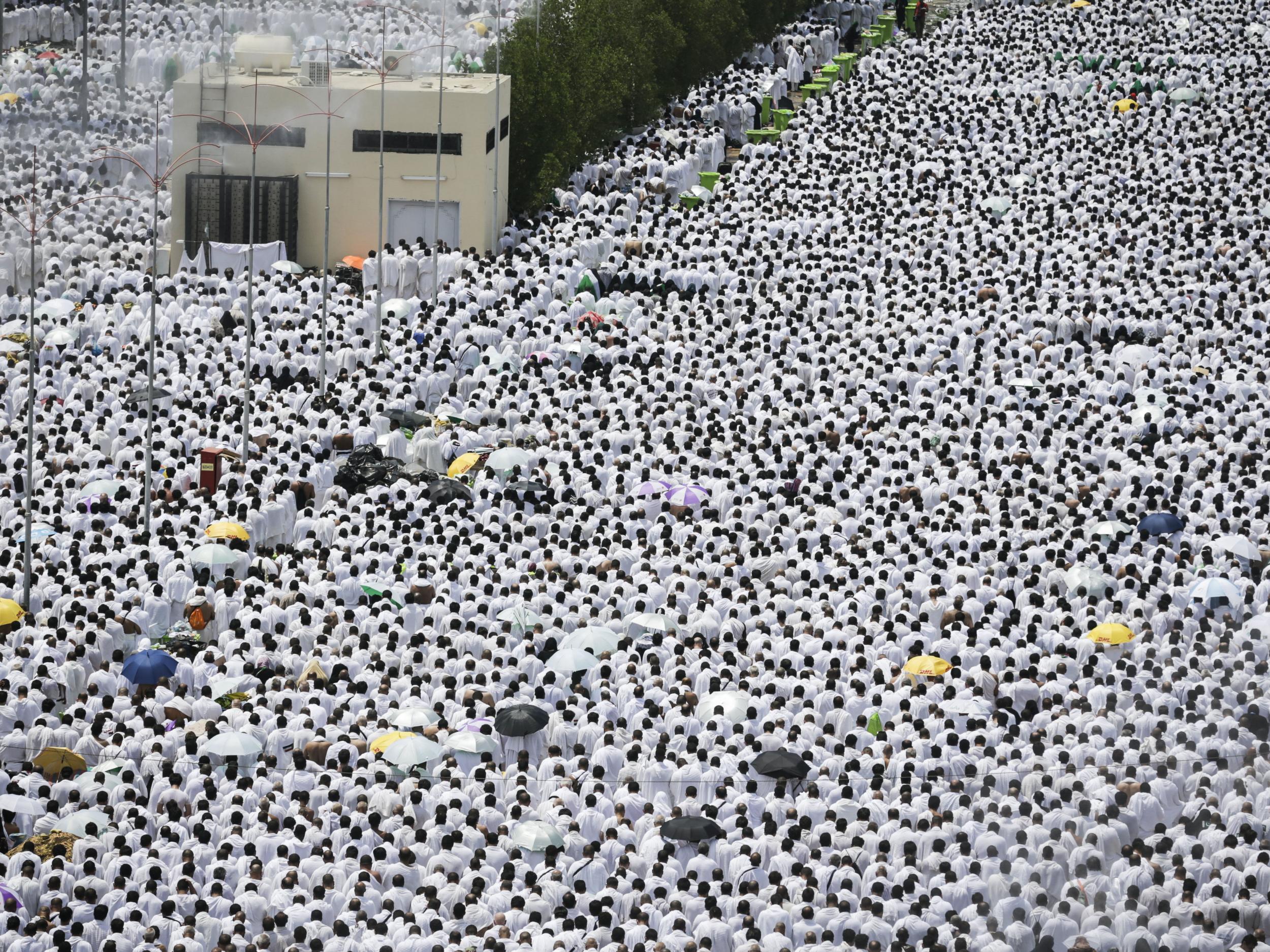Who’s invited to Hajj? How Islam’s holiest pilgrimage took on a political edge
Iranians have returned to Mecca after boycotting as a result of 2015’s deadly stampede, but pilgrims from Qatar are few in number as Gulf diplomatic spat rumbles on

Approximately two million Muslims have gathered in the Saudi Arabian city of Mecca for the culmination of the annual Hajj pilgrimage - but the make up of foreign visitors this year has changed, reflecting the tumultuous political relationships in the region.
Devotees from all over the world spend Thursday - Arafat Day - in prayer at holy sites in the city before the Eid al-Adha festival begins on Friday 1 September.
Eid al-Adha is one of the holiest celebrations in Islam and marks the end of the Hajj, which must be undertaken at least once in a lifetime by all physically and financially capable Muslims.
Qatari pilgrims hoping to make the holy journey this year were thwarted from their goal, however, after Saudi Arabia refused to issue Hajj visas for Qatari citizens and residents.
The Ministry of Awqaf and Islamic Affairs in Doha, which coordinates trips, said on Tuesday that it did not find “any cooperation or positive response from the [Saudi] Ministry of Hajj, which has led to confusion and suspension of the regulatory process for Qatar's pilgrims”.
Saudi Arabia, the UAE, Bahrain and Egypt abruptly cut off all diplomatic and trade ties with tiny Qatar on 5 June, alleging that the state interfered in the affairs of its neighbours and funded terror organisations.
Hajj 2017
Show all 16Qatar vehemently denies all the allegations against it and claims the crisis is politically motivated.
The Hajj decision stands in stark contrast to how pilgrims from Iran - Riyadh’s regional rival - have been treated this year.
The two countries have no formal diplomatic ties, and tensions between them are currently running at an all time high.
Last year, Iran ordered its citizens to boycott Mecca and Medina after the 2015 Hajj stampede which killed approximately 2,000 people - the majority of them Iranian.
In pictures: Hajj stampede
Show all 10This year, however, 90,000 Iranians are expected to descend upon the holy sites - and Riyadh has even organised welcome operations for flights incoming from Tehran.
In a speech to Hajj organisers on Sunday, Iranian Supreme Leader Ayatollah Ali Khamenei said that the country would never forget the “catastrophic events” of 2015, calling on Saudi Arabia to ensure pilgrims’ safety.
“The serious and constant issue for the Islamic Republic is the preservation of the security, dignity, welfare and comfort of all pilgrims, particularly Iranian pilgrims,” Khamenei said, according to his official site. “The security of the Hajj is the responsibility of the country where the two noble shrines exists.”
Subscribe to Independent Premium to bookmark this article
Want to bookmark your favourite articles and stories to read or reference later? Start your Independent Premium subscription today.

Join our commenting forum
Join thought-provoking conversations, follow other Independent readers and see their replies